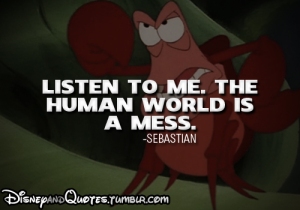Hello bloggers (If I May?),
Welcome to the official start of the Science of Education blogscapdes… in which we shall (creatively?) apply psychological principles to education. So here we go…
How many of you have found yourself in a lecture, seminar or meeting with your phone under the desk texting friends, tweeting or constantly refreshing your Facebook feed? NO you say? Well I don’t believe you… in fact I saw you, 488 million users regularly use Facebook mobile (thanks Facebook for that stat) and 50% of Twitter users tweet from there phones (Microsoft Tag: Mobile Marketing). We know that Social Media has the power to influence the masses, 80% of users are influenced by brand marketing via Facebook (Business2Community: Facebook Marketing), So why isn’t social media (specifically Twitter) incorporated in schools to educate students?
Twitter allows people to make statements and discuss such statements with each-other whether its the success of Obama’s policy or the perfect tuna toasty (always extra cheese). Research behind education tells us that active learning aids understanding of course content (Bonwell & Eison, 1991), Most educators agree that students should be actively engaged in course discussion, so why does the current system discourage online discussion? If we want students to actively discuss what they are learning, online devices such as twitter should be encouraged. In fact J.B. Arbaugh (2000) found students who are part of an online learning scheme will discuss course content more freely than those who have face-to-face peer interaction.
The benefit of twitter in education is not limited to active discussion. Mayer (2002) suggested multimedia effects can enhance learning by providing different sensory information An educational twitter page would be able to provide short information, images and videos to enhance learning. In addition twitter can provide “food for thought” (trying not to mention toasties) by creating short examples or narratives. Worked examples provide a conceptual structure to learning material (Atkinson et al, 2000) allowing students to label information and organise information schematically. Twitter would allow students to share their own applied examples and encourage each other to approach course content in unique ways, improving learning and student engagement.
Finally , Lets consider the use of twitter by teachers. Twitter can be used to clarify course content, answer questions and even be used by the teacher to set questions (or quizzes if you are missing the 90’s). The testing effect suggests that learning improves with increased testing (Carpenter & Delosh, 2006). If students can benefit from regular testing asking questions via twitter may encourage students to attend learnt information more regularly. Although some educators may be reluctant to use twitter as students may not follow a strict teaching plan, teachers can direct discussion and testing of the course by tweeting regularly.
Okay… I have a confession to make, I previously asked, “So why isn’t social media (specifically Twitter) incorporated in schools to educate students?” well… It has been. But don’t worry reader, the previous ramble has not been in vein… there is always room for teaching methods to improve. Schools using twitter at the moment typically use twitter to reward students publicly and encourage participation in school events (Teaching news). But there is so much more potential don’t you think?
Based on the psychological principles, it would be beneficial for classes/modules/teachers/schools to have a twitter page to encourage creative discussion, imaginative thought, activities and testing to encourage engagement in students and improve learning. Schools should incorporate social media, not ignore it.
Thanks for reading, I hope I have given you something to think about, and if you want to know more peruse the references below.
Til next week…
Mobile Marketing: tag.microsoft.com/community/blog/t/the_growth_of_mobile_marketing_and_tagging.aspx
Facebook Marketing: http://www.business2community.com/facebook/facebook-marketing-statistics-you-need-to-know-0289953
Bonwell & Eison (1991): http://www.oid.ucla.edu/about/units/tatp/old/lounge/pedagogy/downloads/active-learning-eric.pdf
Arbaugh (2000): http://jme.sagepub.com/content/24/2/213.short
Mayer (2002): http://www.sciencedirect.com/science/article/pii/S0079742102800056
Atkinson et al (2000): http://rer.sagepub.com/content/70/2/181.short
Carpenter & Delosh (2006): http://link.springer.com/article/10.3758%2FBF03193405?LI=true
Teaching News: http://www.teachingnews.co.uk/2010/03/schools-using-twitter/

